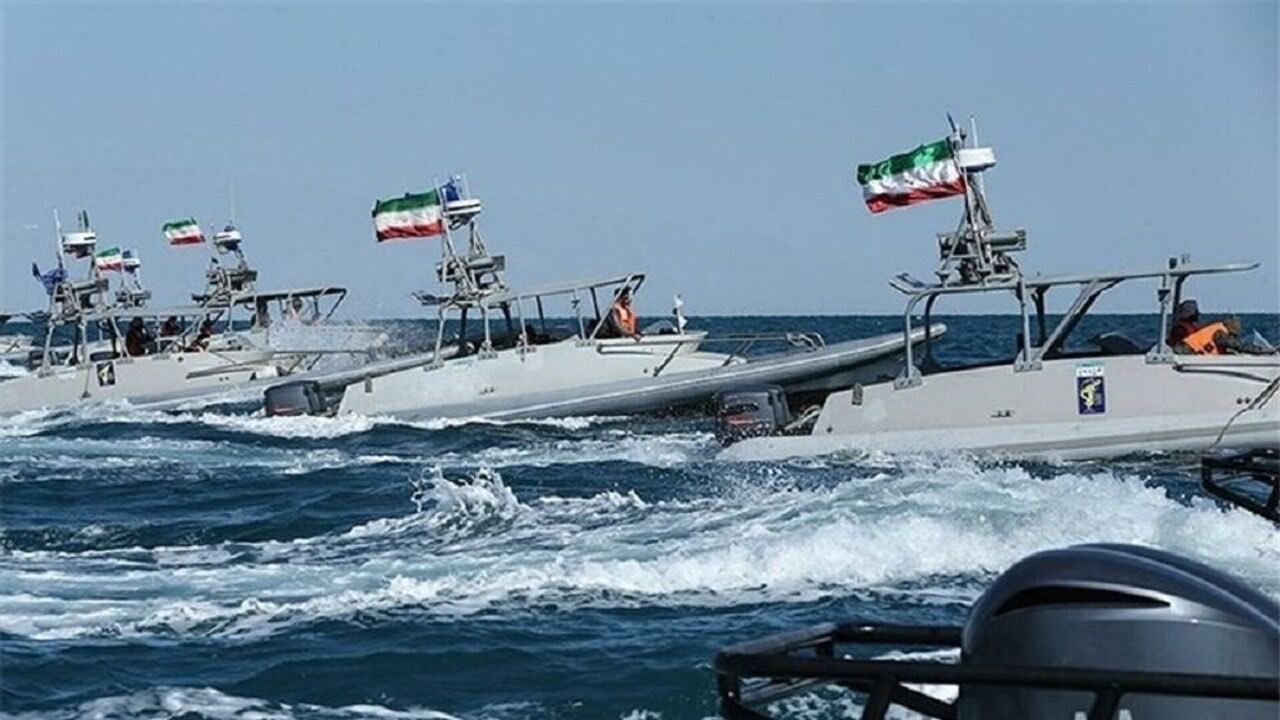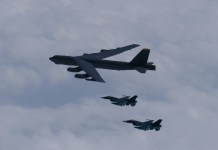Amid increasing belligerence by Iran in the Persian Gulf, the US Navy recently cautioned ships in the region to avoid getting close to the Iranian waters to avoid possible seizure.
“The International Maritime Security Construct is notifying regional mariners of appropriate precautions to minimize the risk of seizure based on current regional tensions, which we seek to de-escalate,” Commander Timothy Hawkins, spokesman for US Fifth Fleet, said.
Earlier, on August 2, the Iran Revolutionary Guard Corps (IRGC) carried out surprise naval drills near a chain of strategically important islands under Iran’s control but also claimed by the UAE amidst increasing tensions with the United States.
According to Iran’s state-run IRNA news agency, the military exercise centered mainly on Abu Musa Island, but the Revolutionary Guard also deployed forces to Greater and Lesser Tunbs Island.
During the exercises, Iran also deployed naval vessels equipped with the Qadir cruise missile systems and Fath 360 ballistic missiles, in addition to utilizing drones, warplanes, and helicopters.
The footage released by state television also depicted the drill featuring swarms of small, fast boats, paratroopers, drones, and truck-launched surface-to-sea missile systems.
The Guard’s chief, Gen. Hossein Salami, said, “We always try for security and tranquility; it is our way. Our nation is vigilant, and it gives harsh responses to all threats, complicated seditions, and secret scenarios and hostilities.”
Defense of Iran in Abu Musa
🔹Pictures of firing cruise systems deployed on Abu Musi Island pic.twitter.com/xngWTie9ie
— Sprinter (@Sprinter99800) August 2, 2023
Subsequently, Salami stated on state TV that there is no necessity for the presence of the United States or its European and non-European allies in the region.
The IRGC’s naval wargame, ‘Martyr Eshaq Dara,’ is conducted to showcase the “authority and combat defense preparations of the IRGC Navy in protecting the security of the Persian Gulf and the Iranian islands.”
The military drills occurred nearly two weeks after the United States increased its military presence in the region. It involved deploying some of its best fighters, F-35s, F-22s, F-16s, and a marine expeditionary force typically comprising 2,500 marines and at least two warships.
The Pentagon has stated that the deployment of additional forces is a direct response to Iran’s recent attempts to threaten the free flow of commerce in the Strait of Hormuz and its adjacent waters.

Given that approximately 20% of the world’s oil transits through this narrow waterway, linking the Persian Gulf to the global market, the United States considers it vital for its national security interests and for maintaining stability in global energy prices.
The increase in US military presence also came after reports that the UAE complained to Washington, expressing its belief that the response to the Islamic Republic’s recent seizure of oil tankers in the region was insufficient.
Issues Of Disputed Islands
On November 30, 1971, just two days before the UAE’s formation, Iran took control of Abu Musa, Greater Tunb, and Lesser Tunb islands. Although the UAE claims sovereignty over these islands, Iran currently administers them and staunchly defends its claim.
Tehran claims that the islands of Abu Musa, Greater Tunb, and Lesser Tunb have been historically part of successive Persian empires and justifies its military presence on the islands through a 1971 Memorandum of Understanding between the previous government of the Shah of Iran and the ruler of Sharjah, one of the UAE’s emirates.
For almost twenty years, the UAE and Iran managed an uneasy interim agreement, leading to both countries sharing Abu Musa’s offshore oil revenues. However, in 1992, negotiations to settle the dispute collapsed, leading Iran to strengthen its military presence on the islands.
The UAE asserts that Arab traders governed the islands for centuries and have unsuccessfully sought arbitration from the International Court of Justice (ICJ) to resolve the dispute.
Additionally, there is a dispute over the Durra gas field, with Kuwait and Saudi Arabia asserting ownership while Iran claims a portion of the northern area. Lately, tensions have escalated regarding these territorial disputes.
In July, the Gulf Cooperation Council (GCC) issued a statement calling for a “peaceful resolution” to the Abu Musa and Tunbs Islands dispute after a meeting between Russian Foreign Minister Sergey Lavrov and the GCC, which led to Iran summoning the Russian ambassador as a response.
Furthermore, last month, Kuwait’s Oil Minister announced Kuwait’s decision to begin drilling at Durra without waiting for a demarcation agreement with Iran.
These rising tensions come amidst recent improvements in Iran’s relations with Arab Gulf states. While Saudi Arabia and Iran resumed relations in March, the UAE, and Kuwait took the step last year.
- Contact the author at ashishmichel(at)gmail.com
- Follow EurAsian Times on Google News




